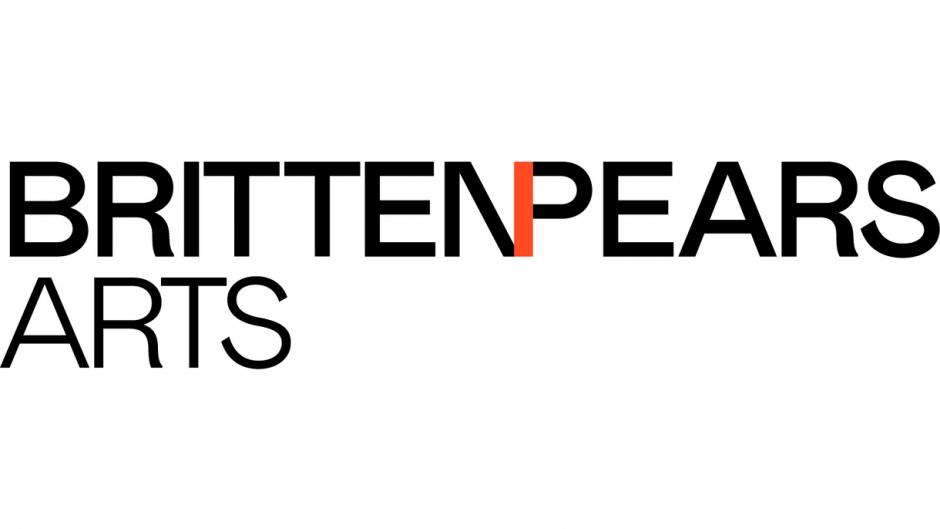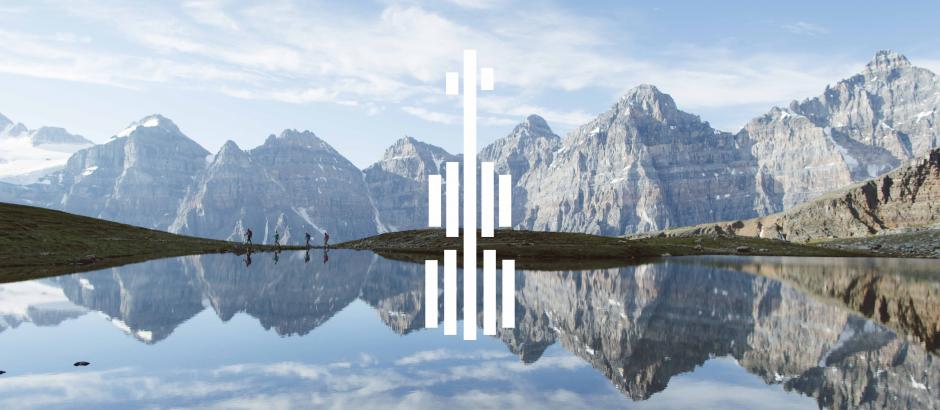
Competition Dates
August 29 – September 4, 2022
Quartet Application Deadline: March 1, 2022
Competition Information
Overview
The Banff International String Quartet Competition is recognized as one of the premier chamber music competitions in the world. Established in 1983, BISQC is a large celebration of chamber music in a festival format attracting enthusiastic capacity audiences. The unparalleled exposure to concert presenters, managers and broadcasters from North America and abroad makes BISQC a career launching pad for all invited ensembles.
All 10 quartets invited to participate in the competition are provided transportation from their home to Banff, as well as room and board for the duration of BISQC.
Prizes
In addition to generous cash prizes, the laureate quartets are offered residency opportunities at Banff Centre and, for the first prize laureates, a custom-designed three-year artistic and career development program which includes the Southern Methodist University Peak Fellowship Ensemble-in-Residence Prize, a two-year paid residency worth $200,000 CAD, an Esterházy Foundation Residency with concerts at Haydn Hall in Eisenstadt and the Lucerne Festival, as well as an opportunity for a two-week Chamber Music in Residency at the prestigious Britten Pears Arts in England.
Full details below and in the Rules, Regulations and Repertoire.
Career Development Prizes
In recognition of the extraordinary level of artistry that BISQC attracts, in 2016 a new career development program was introduced which guarantees financial support to all invited quartets. All seven quartets not advancing to the finals will receive a Christine and David Anderson Career Development Prize of $5,000 CAD.
How to Apply
Online applications are accepted between the dates of October 4, 2021 and March 1, 2022.
Applying for BISQC is a 2-step process:
- Apply and pay $225 fee through Banff Centre's online portal
- Complete Accept'd application to submit support material
Applications close March 1, 2022, 23:59 GMT -07:00 (11:59 pm MT)
ALL SUPPORT MATERIAL INCLUDING VIDEOS, MUST BE SUBMITTED BY THIS TIME.
Prizes
1st Place Laureates:
One quartet will be awarded a custom-designed, three-year artistic and career development program which includes:
- $25,000 CAD cash prize;
- Winner’s Concert Tours in career-building markets in Europe and North America, arranged by Banff Centre;
- A two-week residency at Banff Centre including a recording produced by Banff Centre;
- Coaching, career guidance, and mentorship;
- Southern Methodist University Peak Fellowship Ensemble-in-Residence Prize which includes a two-year paid visiting residency at the Meadows School involving performances, coaching, and mentorship. This residency is valued at over $200,000 CAD.
- Esterházy Foundation Residency including concerts at Haydn Hall in Eisenstadt and the Lucerne Festival.
- An opportunity for a two-week Chamber Music Residency at the prestigious Britten Pears Arts in England
- St. Lawrence String Quartet's "John Lad Prize" - BISQC winner's concert on the main stage of Stanford University's Bing Recital Hall for Standford Live's series in 2022-23
2nd Place Laureates:
- $12,000 CAD cash prize;
- A creative residency at Banff Centre including coaching and mentorship opportunities.
3rd Place Laureates:
• $8,000 CAD cash prize;
• A creative residency at Banff Centre including coaching and mentorship opportunities.
The R.S. Williams & Sons Haydn Prize:
$4,000 for the best performance of a Haydn quartet from Round 1.
The Canadian Commission Prize, in honour of the R.S. Williams & Sons Company:
$4,000 for the best performance in Round 3 of the new commissioned quartet by Dinuk Wijeratne.
Christine and David Anderson Career Development Prizes:
In recognition of the extraordinary level of artistry that BISQC attracts, all 7 quartets not advancing to the finals will receive a $5,000 CAD prize to support their emerging careers.
St. Lawrence String Quartet Prize
Rules, Regulations, and Repertoire
Eligibility
1. The competition is open to string quartets of all nationalities whose members are each under the age of 35 on September 5, 2022.
2. First and second prize winners of any previous Banff International String Quartet Competition (BISQC) are ineligible to apply. For the purposes of this rule, this includes quartets or individual members of quartets.
3. Quartets that have already competed twice in BISQC are ineligible to apply. For the purposes of this rule, a quartet will be considered the same group if 50 percent of the personnel are returning.
Application Process
4. Application is a two-staged online process. Submitting your application form and fee via Banff Centre’s portal is STAGE 1. Submitting your support materials via the Acceptd online application tool is STAGE 2. All materials must be submitted online:
4.1 STAGE 1:
- Online application form
- A non-refundable application fee of $225 CAD. Payment must be made via Banff Centre’s Office of the Registrar.
4.2 STAGE 2:
- A resume of the quartet’s history including repertoire list and performance history for the period covering January 2019 to October 2021. Please include all booked concerts that may have been cancelled due to the pandemic as well as any online concerts.
- A professional quality, high-resolution colour photograph with photo credit details.
- A brief description of each member’s training and experience.
- Proof of date of birth for each quartet member (e.g. copy of valid passport or birth certificate).
- Two recommendations are to be requested directly via the online application tool.
- Three videos* (one per work) recorded after January 1, 2021, containing:
4.2.1 Two contrasting movements of a quartet by Franz Joseph Haydn from Opus 20, 33, 50, 54, 55, 64, 71, 74, 76 or 77;
OR
Two contrasting movements from one of the ten celebrated W.A. Mozart quartets (K. 387, K. 421, K. 428, K. 458, K. 464, K. 465, K. 499, K. 575, K, 589, K, 590);
OR
Two contrasting movements from one of Ludwig van Beethoven’s Opus 18 quartets.
4.2.2 First movement from a quartet from the romantic or nationalist repertoire of the 19th century, or the Debussy Quartet, Op. 10, or the Ravel Quartet, or the Elgar Quartet, Op. 83, or Sibelius Quartet "Voces intimae", Op. 56. Quartets by Schubert or Beethoven will not be accepted in this round.
4.2.3 A complete quartet from the following list:
- Béla Bartók: String Quartet No. 1, Sz. 40
- Béla Bartók: String Quartet No. 2, Sz. 67
- Béla Bartók: String Quartet No. 3, Sz. 85
- Béla Bartók: String Quartet No. 4, Sz. 91
- Béla Bartók: String Quartet No. 5, Sz. 102
- Béla Bartók: String Quartet No. 6, Sz. 114
- Alban Berg: Lyric Suite
- Alban Berg: String Quartet, Op. 3
- Benjamin Britten: String Quartet No. 1, Op. 25
- Benjamin Britten: String Quartet No. 2, Op. 36
- Benjamin Britten: String Quartet No. 3, Op. 94
- Henri Dutilleux: Ainsi la nuit
- Alberto Ginastera: String Quartet No. 1, Op. 20
- Alberto Ginastera: String Quartet No. 2, Op. 26
- Paul Hindemith: String Quartet No. 4, Op. 22
- Paul Hindemith: String Quartet No. 5, Op. 32
- Leoš Janáček: String Quartet No. 1, “Kreutzer Sonata”
- Leoš Janáček: String Quartet No. 2, “Intimate Letters”
- György Ligeti: String Quartet No. 1
- György Ligeti: String Quartet No. 2
- Arnold Schoenberg: String Quartet No. 3, Op. 30
- Arnold Schoenberg: String Quartet No. 4, Op. 37
- Dmitri Shostakovich: String Quartet in F Major, No. 3, Op. 73
- Dmitri Shostakovich: String Quartet in B flat Major, No. 5, Op. 92
- Dmitri Shostakovich: String Quartet in E flat Major, No. 9, Op. 117
- Alexander Zemlinsky: String Quartet No. 3, Op. 19
- Alexander Zemlinsky: String Quartet No. 4, Op. 25
*The videos must be of professional quality, shot by a single stationary camera in real-time, and must not be edited or altered in any way. You can record movements individually if preferred – you do not need to record multi-movement works in one take. You will be required to clearly identify your repertoire in the online application portal. BISQC reserves the right to disqualify studio enhanced or modified recordings, or recordings that are not of professional quality. Physical DVDs or CDs, or digital audio recordings will NOT be accepted. Applicants must use the Acceptd online application tool.
5. Online applications, together with all required supporting documents and the application fee, must be submitted between the dates of October 4, 2021, and March 1, 2022. All application materials must be received by March 1, 2022 (23:59 GMT-07:00).
Selection Process
6. All applications will be pre-screened by BISQC prior to the preliminary jury adjudication process. Any application not meeting the highest standards will not be forwarded to the preliminary jury for consideration.
7. The preliminary jury members will review the submitted video recordings and supporting documents. No more than 10 quartets will be selected to attend the competition.
8. Quartets selected for the 14th BISQC will be advised by April 30, 2022, by email and phone.
9. The quartets selected to participate in BISQC are required to arrive in Banff Friday, August 26, 2022, and remain on-site through to a departure of Monday, September 5, 2022.
Jury
10. Selected Quartets shall not communicate with jury members during the competition, nor shall any other person communicate with the jury members on behalf of any competitor. Violation of this rule may result in automatic disqualification from the competition.
11. The decisions of the preliminary jury and the competition jury shall be final, and no correspondence will be entered into regarding the decisions of either group.
Competition Repertoire & Format
12.The quartet’s selected repertoire for performance during the competition may include the works presented during the application phase.
13. Each quartet invited to BISQC will perform in the first four rounds and if selected, will perform a fifth time during the Final Round.
14. The competition format and required repertoire is as follows:
14.1 ROUND 1: 21st Century Haydn
Quartets will perform a complete work by Franz Joseph Haydn from the list below as well as a complete quartet written in 2000 or later (2000-2022). The total time of this round shall not exceed 50 minutes.
Haydn Selections:
- Franz Joseph Haydn: String Quartet, Op. 20, No. 1, 2, 3, 4, 5 or 6
- Franz Joseph Haydn: String Quartet, Op. 33, No. 1, 2, 3, 4, 5 or 6
- Franz Joseph Haydn: String Quartet, Op. 50, No. 1, 2, 3, 4, 5 or 6
- Franz Joseph Haydn: String Quartet, Op. 54, No. 1, 2 or 3
- Franz Joseph Haydn: String Quartet, Op. 55, No. 1, 2 or 3
- Franz Joseph Haydn: String Quartet, Op. 64, No. 1, 2, 3, 4, 5 or 6
- Franz Joseph Haydn: String Quartet, Op. 71, No. 1, 2 or 3
- Franz Joseph Haydn: String Quartet, Op. 74, No. 1, 2 or 3
- Franz Joseph Haydn: String Quartet, Op. 76, No. 1, 2, 3, 4, 5 or 6
- Franz Joseph Haydn: String Quartet, Op. 77, No. 1 or 2
Ensembles will perform complete works in the order of their preference. Ensembles may leave the stage briefly between works. PLEASE NOTE: Ensembles may be required to provide a copy of the score for their chosen contemporary work.
14.2 ROUND 2: Romantic
Quartets will perform a complete quartet from the romantic or nationalist repertoire of the 19th century, or the Debussy Quartet, Op. 10, or the Ravel Quartet, or the Elgar Quartet, Op. 83, or Sibelius Quartet "Voces intimae", Op. 56. Quartets by Schubert or Beethoven will not be accepted in this round.
14.3 ROUND 3: Canadian Commission
Quartets will perform a new quartet of approximately 9 minutes in length by Canadian-Sri Lankan composer Dinuk Wijeratne. The work will be available to quartets that successfully pass the preliminary screening round and accept the invitation to participate in the 14th BISQC. Score and parts will be sent to the competing quartets by July 5, 2022.
14.4 ROUND 4: Recital Ad-Lib
A program of up to 35 minutes programmed with a repertoire of the Quartet’s choosing. This round may include full works or single movements.
*Note: It cannot include Beethoven's works listed in 14.5 (Round 5) but may include other works of Beethoven if desired.
Following the Recital Round, the jury will select three ensembles to advance to the fifth, and final, round.
14.5 ROUND 5: Beethoven Finals
One complete quartet from the following list:
- Ludwig van Beethoven: Opus 59, No. 1, 2, or 3
- Ludwig van Beethoven: Opus 127
- Ludwig van Beethoven: Opus 130 (Competitors may choose as the last movement either the Finale: Allegro from Op. 130 or the Grosse Fugue from Op. 133)
- Ludwig van Beethoven: Opus 131
- Ludwig van Beethoven: Opus 132
- Ludwig van Beethoven: Opus 135
15. If accepted to compete in the 14th BISQC, competitors will be advised, prior to arrival in Banff, as to which repeats will be accepted and which repeats must be omitted during performances.
16. The works from the repertoire list as stated on the application form will be the repertoire performed during the competition. No other work may be substituted without the prior written approval of the BISQC Director.
17. Any quartet that has competed in a previous Banff International String Quartet Competition cannot present any of the same repertoire they performed for the public and jury in any previous BISQC.
18. Quartets are free to perform standing or sitting in any formation.
19. All performances take place in the Jenny Belzberg Theatre at Banff Centre.
Practical Information
20. BISQC and Banff Centre will provide the following to all invited quartets:
20.1 Return economy airfare from the quartet’s home base to the Calgary International Airport (including cello seat).
20.2 Return ground transportation to the Banff Centre from the Calgary International Airport.
20.3 Accommodation, as is appropriate on Banff Centre campus from Friday, August 26 to Monday, September 5, 2022 (check-out Monday, September 5, 2022).
20.4 All meals from Friday, August 26 through Monday, September 5.
20.5 A separate rehearsal room for each quartet.
21. Obtaining appropriate travel documents and insurance is the sole responsibility of each competitor. BISQC accepts no liability of any kind whatsoever for any personal illness or injury sustained by the competitor or for loss or damage to a competitor’s belongings, including instruments, during transit or while at the competition.
22. Under no circumstances will a change of personnel between the application process and the end of the competition in Banff be permitted.
23. BISQC has the right, without payment of any fee, to record, videotape, film, broadcast, or photograph any competition concerts or events for any purpose. All rights, including copyright in such media, shall vest in and be owned by BISQC in perpetuity.
24. BISQC has the right to produce and distribute without limit or payment of any fee, audio and/or video recordings of all competition concerts or events in whole or in part.
25. The official language of the competition is English.
Prizes
26. The following prizes shall be awarded:
1st Place Laureates: One quartet will be awarded a custom-designed, three-year artistic and career development program which includes:
- $25,000 CDN cash prize;
- Winner’s Concert Tours in career-building markets in Europe and North America, arranged by Banff Centre;
- A two-week residency at Banff Centre including a recording produced by Banff Centre;
- Coaching, career guidance, and mentorship;
- Southern Methodist University Peak Fellowship Ensemble-in-Residence Prize which includes a two-year paid visiting residency at the Meadows School involving performances, coaching, and mentorship. This residency is valued at over $200,000 CDN.
- Esterházy Foundation Residency including concerts at Haydn Hall in Eisenstadt and the Lucerne Festival.
- An opportunity for a two-week Chamber Music Residency at the prestigious Britten Pears Arts in England
2nd Place Laureates:
- $12,000 CDN cash prize;
- A creative residency at Banff Centre including coaching and mentorship opportunities.
3rd Place Laureates:
- $8,000 CDN cash prize;
- A creative residency at Banff Centre including coaching and mentorship opportunities.
The R.S. Williams & Sons Haydn Prize: $4,000 CDN for the best performance of a Haydn quartet from Round 1.
The Canadian Commission Prize, in honour of the R.S. Williams & Sons Company: $4,000 CDN for the best performance in Round 3 of the newly commissioned quartet by Dinuk Wijeratne.
Christine and David Anderson Prize: $5,000 CDN for each of the quartets not selected to the final round of the competition.
27. All quartets accepted into the competition must agree that, if they win first prize, they will perform in the Winner’s Concert Tour arranged for them by BISQC or its designates in Fall 2023, Winter 2024, and Spring or Summer 2024. Concert booking periods will be available to all accepted quartets by April 30, 2022.
28. BISQC does not retain any fees for its management service in arranging the Winner’s Concert Tour but reserves the right to enter into an agreement with other management to secure concert engagements. Concert engagements obtained by BISQC or its designates as part of the first prize will not be subject to any fee payable to the prize winner's current or future artist management. In addition, the winning quartet and its current or future artist management agree to give exclusivity within a 100 km radius to Winner’s Concert Tour presenters for the concert season in which the quartet appears.
29. Should a situation arise where the winning quartet cannot procure the necessary travel documents or visas, or cannot fulfill the concert obligations, BISQC retains the right to transfer the winning prize to the runner up or a quartet of its choosing.
30. Should there be a change in the personnel of the winning quartet after the competition, BISQC reserves the right to cancel the winning quartet’s participation in the winner’s career development program, including any future concert performances.
31. All competing Quartets coming to Banff Centre campus agree to comply with all provincial and Banff Centre mandated health and safety measures.
32. By agreeing to participate in BISQC 2022, competing Quartets become ambassadors of Banff Centre and the Banff International String Quartet Competition and must conduct themselves in an exemplary manner. BISQC reserves the right to cancel the participation of Quartets and/or their members that display inappropriate behaviour in advance of or during the competition or during the Winner’s Concert Tour and Career Development period. Quartets will be required to sign a Code of Conduct as part of the application process and Winners will have a Code of Conduct included in their Career Development contract.
Career Development Prize
33. Upon completion of the first four rounds of BISQC, all quartets not selected to the final round of the competition will receive a Christine and David Anderson Prize of $5,000 CDN.
Prizes are in Canadian dollars and are subject to relevant Canadian government withholding taxes (with the exception of the Southern Methodist University Peak Residency. Funds for the SMU Residency are paid directly by SMU to the musicians of the winning ensemble and may be subject to the United States withholding taxes).
Additional Important Information
34. Banff Centre sits on the side of Sacred Buffalo Guardian Mountain and BISQC takes place on Treaty Seven Territory, the traditional and ancestral home of the Indigenous Nations Stoney Nakoda, Blackfoot, and Tsuut’ina. We acknowledge that for many of our competitors, this privilege may not be understood as Canada’s relationship with our Indigenous people is one where we are actively working towards Reconciliation for past and current injustices. For 2022, BISQC is taking additional responsibility to work with the traditional Indigenous Nations and offer learning opportunities that will connect our quartets more closely with the beautiful lands on which BISQC takes place. The ten competitors will be encouraged to participate in a pre-recorded online learning session prior to arrival as well as an in-person group session as part of on-campus artist orientation. These sessions, led by members of Treaty Seven Territory, are designed to offer participants an opportunity to build a connection to the history and land.
BISQC Preliminary Jury 2022
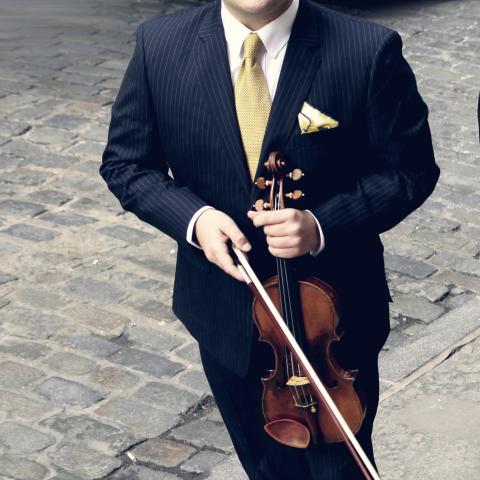

Aaron Boyd
Preliminary Jury
Violinist Aaron Boyd has established an international career as soloist, chamber musician, orchestral leader, recording artist, lecturer and pedagogue. Since making his New York recital debut in 1998, Boyd has appeared at the most prestigious venues throughout the United States, Europe, Russia and Asia and has participated in the Marlboro, Tippet Rise, La Jolla, Rockport, Aspen and Hong Kong and Music@Menlo festivals. Boyd has been a regular season artist of The Chamber Music Society of Lincoln Center since 2012.
A member of the Escher String Quartet for five seasons, Boyd was a recipient of the Avery Fisher Career Grant and the Martin E. Segal prize from Lincoln Center. As a passionate advocate for new music, Boyd has been involved in numerous commissions and premieres in concert and on record, and has worked directly with such legendary composers as Milton Babbitt, Elliott Carter and Charles Wuorinen.
Recently featured on Live From Lincoln Center’s “ODYSSEY: The Chamber Music Society in Greece”, Boyd has been broadcast in concert by PBS, NPR, WQXR and WQED, and was profiled by Arizona Public Television. Formerly on the violin faculties of Columbia University and the University of Arizona, Boyd now serves as Director of chamber music and Chair of Strings at the Meadows School of the Arts at Southern Methodist University and makes his home in Plano, Texas, with his wife Yuko, daughter Ayu and son Yuki.
Boyd plays on violins crafted by Matteo Goffriller in Venice, 1700, and Samuel Zygmuntowicz, Brooklyn, 2018
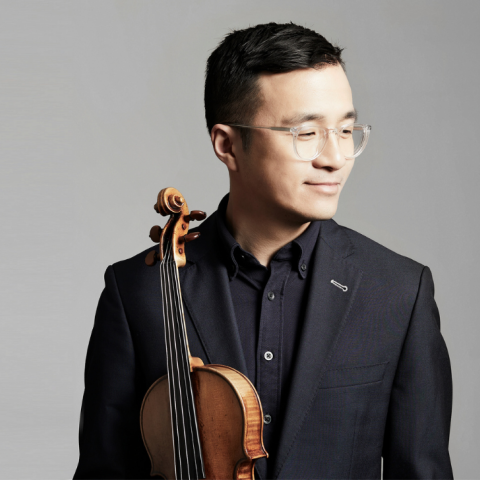

Andrew Wan
Preliminary Juror
Concertmaster of the Montreal Symphony Orchestra (MSO) since 2008, Andrew Wan is also Associate Professor of Violin at the Schulich School of Music at McGill University, Artistic Director of the OSM Chamber Soloists, member of the Juno and Opus award-winning New Orford String Quartet (NOSQ), and for the 2017-18 season, served as Artistic Partner of the Edmonton Symphony Orchestra.
As a soloist, he has appeared in Canada, the United States, China, New Zealand, Cuba, Argentina, Brazil, and Switzerland under conductors such as Maxim Vengerov, Peter Oundjian, Vasily Petrenko, the late James DePreist, and Rafael Payare. His live recording of the three Saint-Saëns Violin Concerti with Kent Nagano and the MSO was released by Analekta in the fall of 2015 to wide critical acclaim, garnering a Prix Opus and an ADISQ nomination. His next album release with Nagano and the MSO of concerti by Ginastera, Bernstein and Samy Moussa was released in the Fall of 2020 and won the 2021 Juno Award for Best Classical Album for Large Ensemble.
Mr. Wan has concertized extensively throughout the world, appearing in venues such as Carnegie Hall, the Kennedy Center, Taipei’s National Theatre and Paris’ Salle Gaveau in chamber music performances with artists such as the Juilliard Quartet, Daniil Trifonov, Vadim Repin, Emanuel Ax, Gil Shaham, Marc-André Hamelin, Jörg Widmann, Menaham Pressler, and Cho-Liang Lin. He serves as guest concertmaster for the Pittsburgh, Houston, Indianapolis, Toronto, National Arts Centre and Vancouver symphonies, and has appeared as artist and faculty at the St. Prex, Seattle, Aspen, La Jolla, Toronto Summer, Morningside Music Bridge, Olympic, and Orford Music Festivals. Discography includes releases on the Analekta, Onyx, Bridge, ATMA, and Naxos labels with James Ehnes and the Seattle Chamber Music Society, the Felix award-winning OSM Chamber Soloists ensemble, the Grammy award-winning Metropolis Ensemble, and the Juno award-winning NOSQ. He recently completed his recordings of all of the Beethoven Piano and Violin Sonatas with Charles Richard-Hamelin, winning Opus, Felix prizes as well as receiving a Juno nomination.
Mr. Wan received his Bachelor of Music, Master of Music and Artist Diploma degrees from the Juilliard School under the tutelage of Masao Kawasaki and Ron Copes. In the spring of 2019, he received the Part-Time Teaching Award from the Schulich School of Music at McGill University.
Andrew Wan performs on a 1744 Michel’Angelo Bergonzi violin, and gratefully acknowledges its loan from the David Sela Collection. He also enjoys the use of an 1860 Dominique Peccatte bow from Canimex.
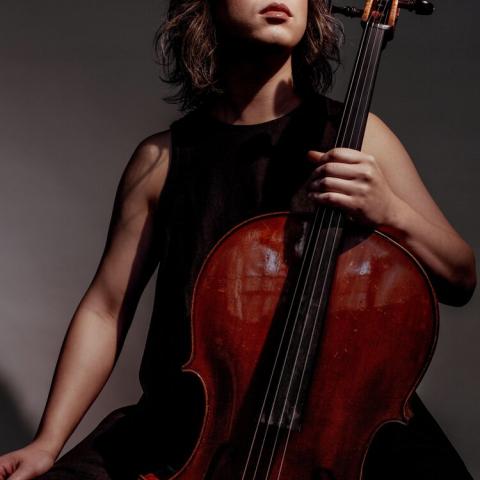

Andrew Yee
Preliminary Juror
GRAMMY Award winning cellist Andrew Yee has been praised by Michael Kennedy of the London Telegraph as “spellbindingly virtuosic”. Trained at the Juilliard School, they are a founding member of the internationally acclaimed Attacca Quartet who have released several albums to Critical acclaim including Andrew’s arrangement of Haydn’s “Seven Last Words” which Thewholenote.com praised as “...easily the most satisfying string version of the work that I’ve heard.” They were the quartet-in-residence at the Met Museum in 2014, and have won the Osaka and Coleman international string quartet competitions. Their newest recording of the string quartets of Caroline Shaw won a GRAMMY for best Chamber Music/Small Ensemble performance. As a soloist last season Andrew performed John Taverner’s The Protecting Veil and Strauss Don Quixote. In 2019 they won the first prize at Oklahoma University’s National Arts Incubation Lab for their pitch of a wearable garment that translates sound into vibrations for the hard of hearing. They like to make stop-motion videos of food, draw apples, cook like an Italian Grandma and have developed coffee and cocktail programs for award-winning restaurants (Lilia, Risbobk, Atla) in New York City.
Their solo project “Halfie” draws on their experience as a bi-racial and non-binary person in having access to multiple communities at once, while not feeling at home in any of them. The works commissioned and on the concerts will feature a wide range of composers all for solo cello.
They play on an 1884 Eugenio Degani cello on loan from the Five Partners Foundation.
BISQC Jury 2022
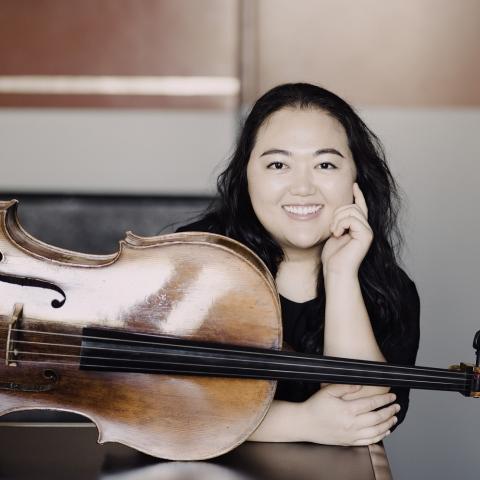

Estelle Choi
BISQC Juror
Born and raised in Calgary, Alberta, cellist Estelle Choi has garnered top prizes as a soloist and as a chamber musician. She has gained international recognition as a founding member of the Calidore String Quartet, an ensemble that celebrated its tenth anniversary in 2020. Praised by the New York Times for its “deep reserves of virtuosity and irrepressible dramatic instinct” the Calidore won the Grand-Prize of the 2016 M-Prize International Chamber Music Competition. Choi is an Avery Fisher Career Grant winner, recipient of the Lincoln Center Emerging Artist award, BBC 3 New Generation Artist and Borletti-Buitoni Trust recipient, a member of the Chamber Music Society of Lincoln Center and alumni of the Bowers Program. Choi’s artistry has been broadly praised by critics like Mark Swed of the Los Angeles Times who wrote that “her tone is rich, deep and powerful, giving the impression that music and the room are a single living being.” Choi studied with John Kadz in Calgary, Aldo Parisot at the Yale School of Music and Ronald Leonard at the Colburn Conservatory. She instructed cello performance and chamber music at the University of Houston. Choi teaches and performs at the University of Delaware. She holds a Masters degree from the Yale School of Music, and a Bachelor and Artist Diploma from the Colburn Conservatory of Music.
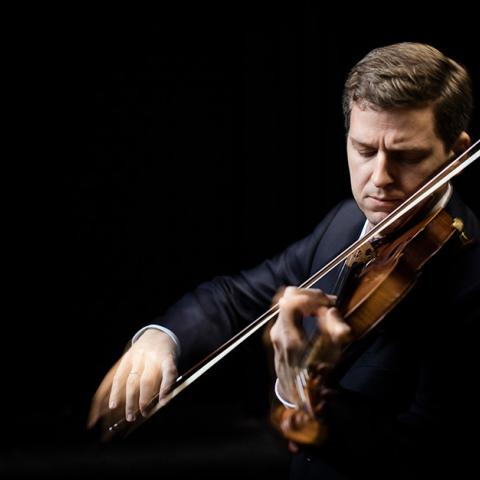

James Ehnes
James Ehnes is one of the world’s foremost violinists and a favorite guest of many of the world’s most celebrated orchestras and concert halls. Recent orchestral highlights include the National Symphony Orchestra at Carnegie Hall, Deutsches Symphonie-Orchester Berlin, Orchestre National de France, Sydney Symphony, and Hong Kong Philharmonic. Alongside his concerto work, Ehnes maintains a busy recital schedule and is the Artistic Director of the Seattle Chamber Music Society. His extensive discography has won many awards, including two Grammys, three Gramophones, and 11 Junos. He began violin studies at the age of four, debuted with l’Orchestre Symphonique de Montréal at age 13 and graduated from The Juilliard School in 1997, winning the Peter Mennin Prize for Outstanding Achievement and Leadership in Music. He is a Fellow of the Royal Society of Canada, a Member of the Order of Canada, and is a professor at the Jacobs School of Music at Indiana University. James Ehnes plays the “Marsick” Stradivarius of 1715.
Photo by Ben Ealovega
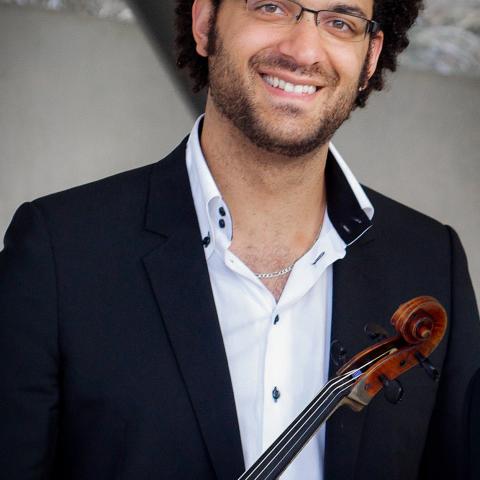

Juan-Miguel Hernandez
BISQC Juror
The Washington Post has praised violist Juan-Miguel Hernandez as having "...the sweetest, most sonorous tone...” (Charles T. Downey). The Atlanta Journal Constitution describes him as "...tender, lyrical, loaded with personality” (Pierre Ruhe). Performances as soloist and chamber musician have seen Juan-Miguel Hernandez on some of the world's leading halls, including Carnegie Hall, Concertgebouw (Amsterdam), Disney Hall (Los Angeles), Salzburg Mozarteum, King's Place (London), Hamburg Elbphilharmonie, Wigmore Hall (London) and The White House.
As a soloist Juan-Miguel has made appearances with orchestras, including the Rochester Philharmonic, San Fransisco Chamber Orchestra, the Chicago Sinfonietta, iPalpiti Orchestra, as well as the Colorado and Atlanta Symphonies. As a chamber musician he has collaborated with distinguished artists such as Lynn Harrell, Ralph Kirshbaum, Kim Kashkashian, Gérard Caussé and Itzhak Perlman.
Chamber music being at the forefront of his career, Juan-Miguel was a member of the legendary Fine Arts Quartet (2013-2018) and original member of the Harlem Quartet (2006-2012), as well as a founder of the "Boreal Trio” (2012-2018) and ”Trio Virado" (2012-2021), both specialized in the creation of new repertoire. He has been a member of the UK based Kaleidoscope chamber collective since 2018.
Festival and program appearances as guest artist and pedagogue include the Festival Pablo Casal (Prades, France), the Festival Des Arcs (France), the Amalfi Coast Music Festival (Italy), Stellenbosch International Chamber Music Festival (South Africa), the Brevard Summer Institute (USA), the Mozaic Festival (USA), Festicamara (Colombia), Montreal Jazz & Panama Jazz Festivals and Musica Mundi International Festival (Belgium), Borromeo (Switzerland) & Madeline Island (USA) Music Festivals, Toronto Summer Music & Orford Academy. In the summer of 2021 he was appointed Associate Artistic Director of the Festival Del lago International Music Festival (Mexico).
He has been featured on radio airwaves and television broadcasts throughout Canada, and the United States including NBC's Good Morning America, The Today Show, NPR radio, PBS and the Telemundo Network and Radio-Canada. His collaborative recordings have been released by Cedille records, the White Pine, Navona, chandos and Naxos music labels.
Juan-Miguel was born in Montreal, Canada and began his musical studies at the age of seven. Among his teachers were Paul Coletti at the Colburn Conservatory and Kim Kashkashian at the New England Conservatory. He also worked with Paul Neubauer, Karen Tuttle, Steven Dann, James Dunham, Barbara Westphal, Garth Knox and Pinchas Zukerman.
Juan-Miguel won the first Prize at the International Johannes Brahms Competition (Austria), adding to other top prizes won at the National Canadian Music Competition, and the 9th National Sphinx Competition, presented by JPMorgan Chase. He was honoured with the medal of the National Assembly of Quebec for his significant international achievements.
His strong commitment to educate and engage new audiences all around the globe have brought him to reach young musicians and various communities through art convoys in South Africa and Venezuela, various music festivals in South America and outreach projects in Europe and North America.
In 2016 Juan-Miguel was appointed as Professor of Viola at the Royal Academy of Music (London) where he now remains as visiting professor after moving back to Montreal. In September 2021, he joined the faculty of music at Montreal university as invited Professor of Viola. He was invited to serve on the Jury of the Johannes Brahms International Competition/Austria (2017), the Sphinx National Competition/USA (2018, 2022 & 2023) and the Banff International String Quartet Competition (2022).
Beyond his extensive classical repertoire he has regularly performed with Jazz living legends Gary Burton, Stanley Clark, Paquito D'Rivera and Chick Corea. Further collaborations include Nora Jones" album "Broken Little Hearts” as well as the album "Hot House" playing alongside Chick Corea and Gary Burton for which a Grammy was awarded.
Juan-Miguel plays on a 2008 Miralles viola from Altadena/California.
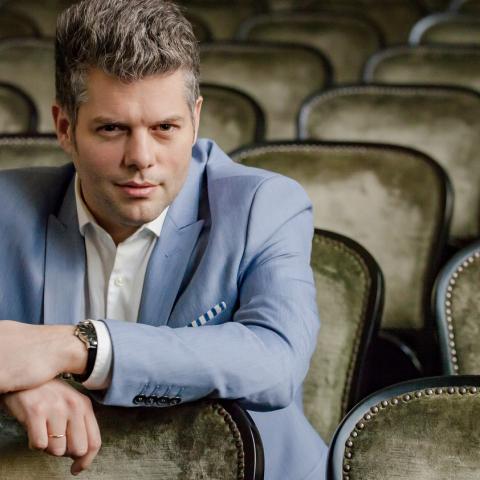

Barnabás Kelemen
BISQC Juror
Violinist Barnabás Kelemen has conquered the most famous concert halls in the world with his virtuoso technique and dynamic, passionate playing style. Versatile and open-minded, he is an outstanding soloist and chamber musician, as well as an artistic director of festivals and a teacher at renowned institutions. In recent years he has also worked as a conductor.
He regularly performs at the world’s most prominent concert venues, including Carnegie Hall, the Concertgebouw, the Royal Festival Hall, the Palais de Beaux Arts, Suntory Hall, and the Berliner Philharmonie. He is a frequent guest of such eminent ensembles as the BBC Symphony Orchestra, the Budapest Festival Orchestra, the Hungarian National Philharmonic Orchestra, the London Symphony Orchestra, the Estonian National Philharmonic Orchestra, the Helsinki Philharmonic Orchestra, the Hong Kong Philharmonic Orchestra, the Indianapolis Symphony Orchestra, and Hannover’s NDR Radiophilharmonie, to name but a few.
He has recorded all of Bartók’s works for violin in the series of albums produced under the aegis of Zoltán Kocsis, and many received international acclaim, especially his CD comprised of Sonatas for Violin and Piano Nos 1 and 2 (featuring Kocsis) and Sonata for Solo Violin, which won the 2013 Gramophone Award. So far, he has released a total of 20 albums – 17 solo and three with his quartet – as well as a double DVD of live performances of Mozart’s complete violin concertos.
Barnabás Kelemen has achieved outstanding results in prestigious contests, including first prizes at both the 1999 International Mozart Violin Competition in Salzburg and the 2002 International Violin Competition of Indianapolis, and third prize at Brussels’ 2001 Queen Elisabeth Violin Competition. His artistry has been recognized with the highest professional and state honours: he has been awarded Liszt and Kossuth Prizes and Prima and Gramophone Awards, and is the holder of the Knight’s Cross of the Order of Merit of the Republic of Hungary.
Together with Katalin Kokas, he is the founder and artistic director of the Festival Academy Budapest Chamber Music Festival, which regularly features artists such as Vilde Frang, Maxim Rysanov, Shlomo Mintz, and Joshua Bell. From 2010 to 2018 he was the leader of the Kelemen Quartet, which enjoyed a stellar international career and which recently started up again with a new formation.
Barnabás Kelemen performs on the “ex-Dénes Kovács” Guarneri del Gesú violin of 1742, generously loaned to him by the Hungarian State.
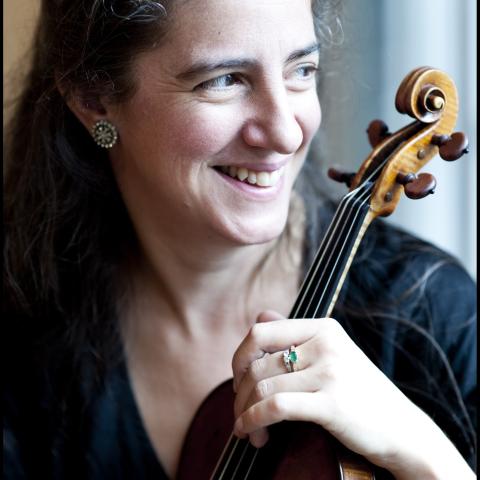

Catherine Manson
BISQC Juror
Catherine Manson enjoys a versatile performing career as a soloist and chamber musician.
As first violinist of the classical London Haydn Quartet she has performed in venues such as Carnegie Hall, the Library of Congress, the Concertgebouw in Amsterdam, London’s Wigmore Hall and the Sydney Opera House. The quartet’s series of recordings of the Haydn quartets on the Hyperion label has met with high critical acclaim internationally.
She was appointed as leader of the Amsterdam Baroque Orchestra in 2006. Together with the orchestra's director, Ton Koopman she has recorded the six obbligato sonatas by Bach, Haydn's concerto for violin and organ and the complete chamber music by Buxtehude. They have given many concerts together throughout Europe.
She is frequently invited as guest leader of ensembles such as The Orchestra of the 18th Century, Collegium Vocale, the Smithsonian Chamber Players in USA and Arcangelo in the UK. She has also appeared as soloist and director with Tafelmusik in Canada and with the Orquesta Barrocca de Sevilla.
Teaching has always been an important part of her musical life; in 2001 she co-founded and now directs MusicWorks, presenting chamber music courses for young musicians. She has given masterclasses and workshops at conservatories in London, Lyon, Barcelona, Sydney, Melbourne, Singapore as well as at Juilliard School, Yale and Indiana Universities.
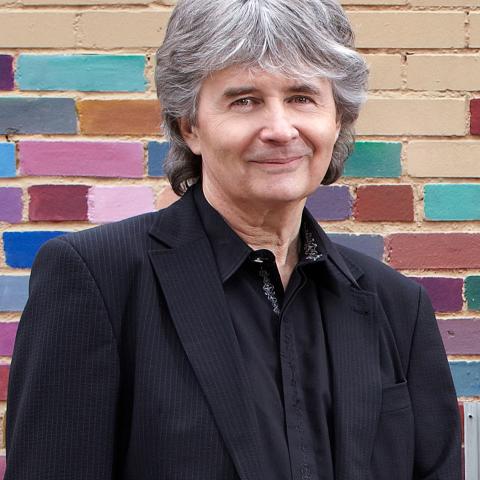

Károly Schranz
BISQC Juror
Grammy award-winning violinist and educator Károly Schranz has performed at some of the most prestigious venues in the world while mentoring the next generation of classical music luminaries. Schranz co-founded the Takács Quartet in 1975 at the Franz Liszt Academy in Budapest. The quartet first received international attention in 1977, winning first prize and the Critics’ Prize at the International String Quartet Competition in Evian, France. The quartet also won the Gold Medal at the 1978 Portsmouth and Bordeaux Competitions and first prizes at the Budapest International String Quartet (1978), London International String Quartet (1979), and the Bratislava (1981) competitions. The Takács Quartet made its North American debut in 1982 and has been in residence at the University of Colorado Boulder since 1983.
During is 43-year tenure with the Takács Quartet, Schranz earned numerous awards, including the Grammy Award for Best Chamber Music Performance (2002), three Gramophone Awards for Best Chamber Music Album, BBC Record of the Year (2005), the Classical Brits Award for Best Chamber Music Album (2005), three Japanese Recording Academy Awards, and the Wigmore Hall Medal (2014), in addition to five Grammy Award nominations and four Gramophone Award nominations. The Takács Quartet was the first string quartet to be inducted into the Gramophone Hall of Fame in 2012.
Schranz previously served as co-founder and instructor of the University of Colorado Graduate String Quartet Program from 2006-2018, where he earned the Excellence in Research, Scholarly, and Creative Work Award, as well as Guest Professor and Fellow at the Guildhall School of Music and Drama and Faculty and Guest Artist at the Music Academy of the West and Aspen Music Festival and School.
Notable collaborations include All the World for Love, a fourteen-city tour with poet laureate Robert Pinsky combining music and the spoken word, and Everyman, a collaboration with Pulitzer Prize winning author Philip Roth and Oscar-award winning actors Philip Seymour Hoffman and Meryl Streep combining readings from Roth’s novel of the same name and Schubert’s “Death and the Maiden”, as well as a long-standing relationship with the Hungarian folk group Muzsikás.
Schranz has served as co-concertmaster of the Hungarian National Opera and the Budapest Philharmonic. He has served on the juries of the London International String Quartet Competition and the International String Quartet Competition of Geneva, Switzerland. He earned Artist and Teaching diplomas from the Franz Liszt Academy where he studied with Mihály Szücs, György Kurtág, and András Mihály.
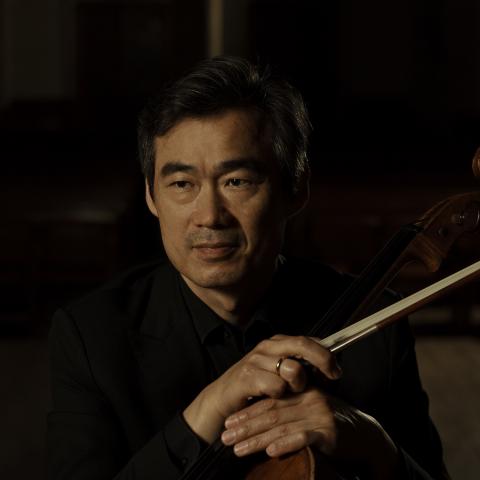

Sung-Won Yang
Born in Korea, Sung-Won Yang graduated from the Conservatoire National Supérieur de Musique de Paris and was assistant to Janos Starker at Indiana University in the United States. He is regularly invited to be in the jury of the International Competitions such as International String Quartet competition in Banff, Canada, the International Cello Competition André Navarra in France, the International Cello Competition Cassado Japan and the Tongyeong International Competition in Korea. Recipient of Chevalier des Arts et des Lettres by the French government, he is currently a professor of cello at the School of Music Yonsei University in Seoul, visiting professor at the Royal Academy of Music and Artistic Director of the Festival Beethoven à Beaune, in France, as well as Music In PyeongChang Festival.
Canadian Commission Composer
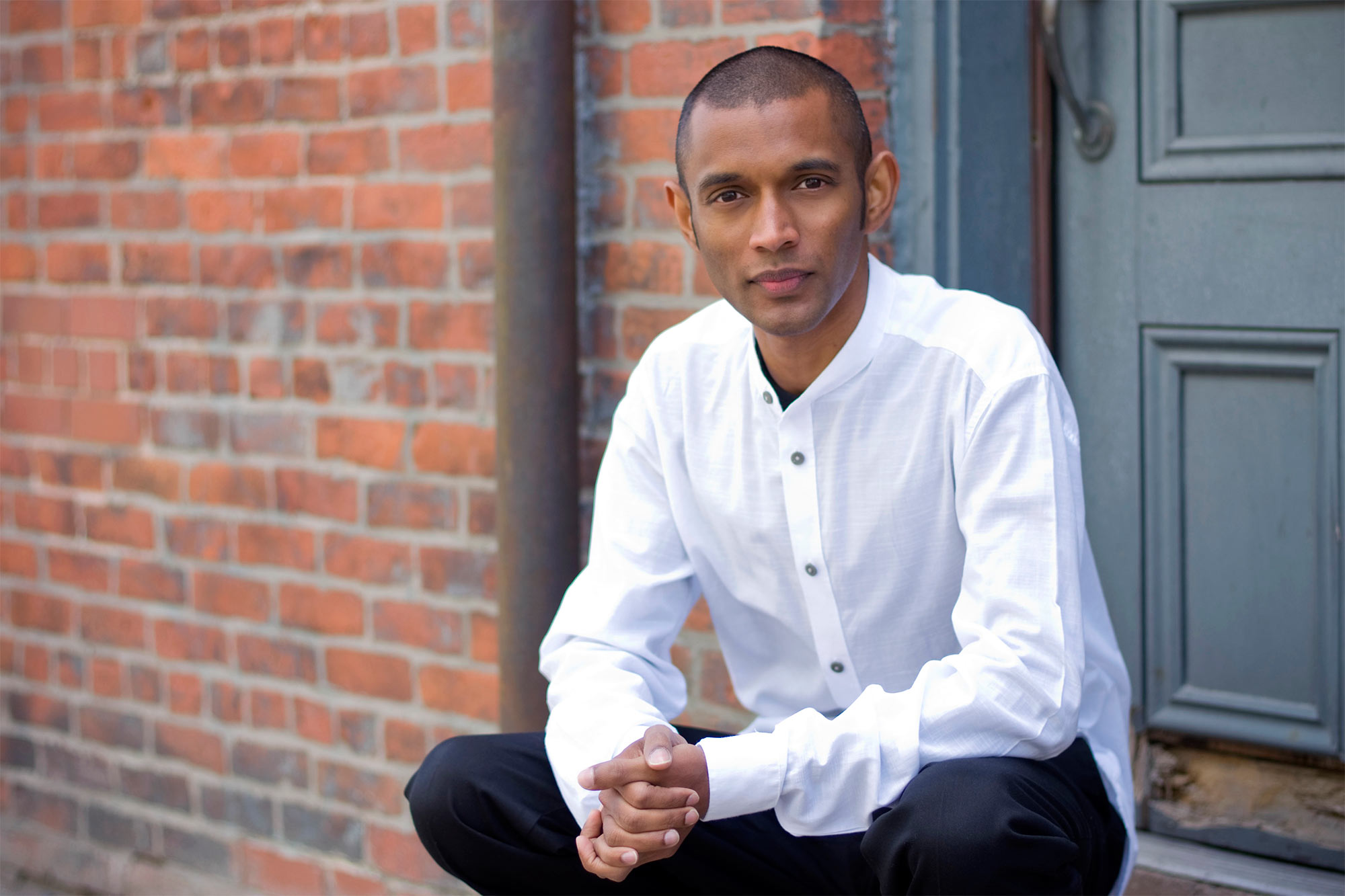
Quartets will perform a new quartet of approximately 9 minutes in length by Canadian-Sri Lankan composer Dinuk Wijeratne.
Sri Lankan-born Canadian Dinuk Wijeratne is a JUNO and multi-award-winning composer, conductor, and pianist who has been described by the New York Times as ‘exuberantly creative’, by the Toronto Star as ‘an artist who reflects a positive vision of our cultural future’, and by the Manitoba Chamber Orchestra as ‘a modern polymath’. His boundary-crossing work sees him equally at home in collaborations with symphony orchestras and string quartets, tabla players and DJs, and takes him to international venues as poles apart as the Berlin Philharmonie and the North Sea Jazz Festival.
Dinuk was featured as a main character in ‘What would Beethoven do?’ – the 2016 documentary about innovation in classical music featuring Eric Whitacre, Bobby McFerrin and Ben Zander. Forthcoming projects include new works for Grammy-winning baritone Elliot Madore (featuring Dinuk as pianist) and Grammy-nominated mandolinist Avi Avital, the test piece for the Banff International String Quartet Competition 2022, and conducting debuts with the Calgary Philharmonic and Qatar Philharmonic, Doha.
Dinuk made his Carnegie Hall debut while still a student in 2004 as a composer, conductor, and pianist performing with Yo Yo Ma and the Silk Road Ensemble. A second Carnegie appearance followed in 2009, alongside tabla legend Zakir Hussain. Dinuk has also appeared at the BoulezSaal (Berlin), Kennedy Center (Washington DC), Opéra Bastille (Paris), Lincoln Center (New York), Teatro Colón (Buenos Aires), Sri Lanka, Japan, and across the Middle East. Dinuk grew up in Dubai before taking up composition studies at the Royal Northern College of Music (RNCM), Manchester, UK. In 2001, he was invited by Oscar-winning composer John Corigliano to join his studio at New York’s Juilliard School. Conducting studies followed at New York’s Mannes College of Music, and doctoral studies under Christos Hatzis at the University of Toronto.
Dinuk has composed specially for almost all of the artists and ensembles with whom he has performed; to name a few: Suzie LeBlanc, David Jalbert, James Ehnes, Kinan Azmeh, Bev Johnston, Joseph Petric, Sandeep Das, Tim Garland, Ed Thigpen, Ramesh Misra, Barry Guy, Eric Vloeimans, Buck 65, DJ Skratch Bastid, the Gryphon Trio, the Afiara, Danel & Cecilia String Quartets, the Apollo Saxophone Quartet, TorQ Percussion, and the Symphony orchestras of Toronto, Vancouver, the National Arts Centre, Edmonton, Winnipeg, Buffalo, Illinois, Fresno, Asheville, Saskatoon, Windsor, Victoria, PEI, and Thunder Bay. Dinuk is the only artist to have served both as Conductor-in-Residence and Composer-in-Residence of a Canadian orchestra (Symphony Nova Scotia).
A passionate educator, Dinuk is committed to helping emerging and mid-career classical artists navigate the classical music industry in today’s increasingly complex, diverse, and globalized world. As a Creativity Consultant he serves private clients as well as students of the Banff Centre (Evolution Classical) and Toronto’s Glenn Gould School. His educational guide ‘Define Your Artistic Voice’ was downloaded 150 times from his blog within the first two days of its release. Dinuk also served as Music Director of the Nova Scotia Youth Orchestra for thirteen seasons. He is also the recipient of the Canada Council Jean-Marie Beaudet award for orchestral conducting; the NS Established Artist Award; NS Masterworks nominations for his Tabla Concerto and piano trio Love Triangle; double Merritt Award nominations; Juilliard, Mannes, & Countess of Munster scholarships; the Sema Jazz Improvisation Prize; the Soroptimist International Award for Composer-Conductors; and the Sir John Manduell Prize – the RNCM’s highest student honour. His music and collaborative work embrace the great diversity of his international background and influences.
Composer in Residence Program during BISQC 2022 made possible with support by Dr. Gail Andrew.
The lecture series is generously supported by Ernie and Sandra Green.
Mentor in Residence
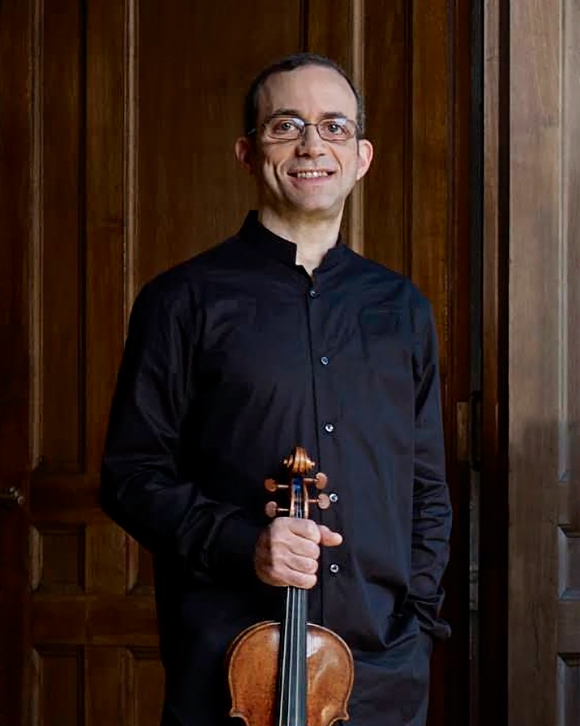
Mark Steinberg is first violinist and founding member of the Brentano Quartet. With the quartet he has performed for thirty years on five continents. The quartet is ensemble in residence at Yale University, has recorded extensively, and has won awards such as the Naumburg Chamber Music Award, the inaugural Cleveland Quartet award and the Royal Philharmonic Society award for best debut in the UK. Steinberg has appeared often in trio and duo concerts with pianist Mitsuko Uchida, with whom he presented the complete Mozart sonata cycle in London's Wigmore Hall in 2001. Mr. Steinberg has been soloist with the London Philharmonia, the Los Angeles Philharmonic, the Auckland Philharmonia, and other orchestras. He holds degrees from Indiana University and The Juilliard School and has studied with Louise Behrend, Josef Gingold, and Robert Mann. He is currently on the violin faculties of the Manhattan School of Music, and The Graduate Center at CUNY. Steinberg has been on quartet competition juries at the Banff International Quartet Competition, the London Quartet Competition, and twice at the Mozart International Quartet Competition in Salzburg as well as the Naumburg Violin and Chamber Music Competitions. He has taught often at the Banff Centre for the Arts, the Aspen Festival, Norfolk Chamber Music Festival, the Steans Institute at Ravinia, and the Taos School of Music and has given master classes at Rice University, the Eastman School of Music, the Cleveland Institute of Music, the Britten-Pears Institute in Aldeburgh, England, the Mozarteum in Salzburg, the Guildhall School, the Amsterdam Conservatory, and numerous other schools.
Mentor in Residence Program supported in honour of the R.S. Williams & Sons Company.
Many competitions exist for chamber music, but no competition is as prestigious for string quartets exclusively as Banff. Having served on the jury twice—once in the preliminary screening round and once for the live auditions in Banff—I can say, without any doubt, that the judging was honest and transparent. The Banff Competition has certainly helped launch the careers of many deserving young string quartets.
Philip Setzer, Emerson String Quartet


